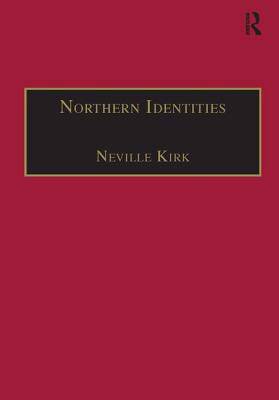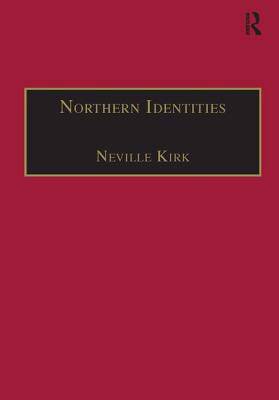
- Afhalen na 1 uur in een winkel met voorraad
- Gratis thuislevering in België vanaf € 30
- Ruim aanbod met 7 miljoen producten
- Afhalen na 1 uur in een winkel met voorraad
- Gratis thuislevering in België vanaf € 30
- Ruim aanbod met 7 miljoen producten
Zoeken
Northern Identities
Historical Interpretations of 'The North' and 'Northernness'
€ 195,95
+ 391 punten
Omschrijving
Recent years have witnessed an explosion of academic and popular interest in the issue of social identity. Yet the subject areas of regional and sub-regional identities, and historical engagements between 'the regional', 'the local' and 'the national', remain very neglected. Seeking to make a contribution towards redressing these areas of neglect and to further advancing our knowledge and understanding of the general issue of social identity, this volume of essays offers the reader an exploration of some of the rich and varied, historical interpretations of 'the North' and 'Northernness'. The focus rests mainly, but not exclusively, upon the North of England. Taken as a whole, the essays highlight the contingent, fluid, and ambiguous nature of 'Northenness', its complex and shifting interplay with feelings of localism and nationalism, and the profound, if varying, influences of class, race, gender, sport, tourism, music and political and economic structures and concerns upon 'northern' identities. This book will hold a general appeal to readers interested in the issue of social identity, especially in its regional and local manifestations and engagements. It will find a wide readership across the humanities and social sciences. It should be compulsory reading for those in New Labour addressing the issue of the 'North-South divide'.
Specificaties
Betrokkenen
- Uitgeverij:
Inhoud
- Aantal bladzijden:
- 256
- Taal:
- Engels
- Reeks:
Eigenschappen
- Productcode (EAN):
- 9780754600398
- Verschijningsdatum:
- 29/03/2000
- Uitvoering:
- Hardcover
- Formaat:
- Genaaid
- Afmetingen:
- 152 mm x 219 mm
- Gewicht:
- 489 g

Alleen bij Standaard Boekhandel
+ 391 punten op je klantenkaart van Standaard Boekhandel
Beoordelingen
We publiceren alleen reviews die voldoen aan de voorwaarden voor reviews. Bekijk onze voorwaarden voor reviews.










